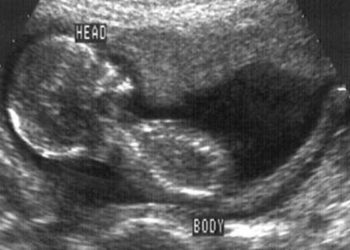Increased mortality in mothers after the birth of an infant with major congenital anomalies
1. There is small increased risk of mortality in mothers who have given birth to an infant with a major congenital anomaly.
2. Increased maternal mortality was attributed to increased risk of death from cardiovascular and respiratory disease.
Evidence Rating Level: 2 (Good)
Study Rundown: Previous descriptive studies have found associations between the birth of a child with serious medical conditions and poorer health in parental caregivers. For instance, mothers of children with significant congenital anomalies are more likely to report poor physical and mental health, and physiological studies have shown an impaired ability to suppress pro-inflammatory signals and increased rates of cellular aging. The underpinnings of this association are not clear and this study was initiated to better understand the relationship between children with congenital abnormalities and mortality in the mother.
Researchers identified 455 250 women in Denmark who had given birth to a child between 19790 and 2010 and analyzed their health in a retrospective fashion. They found a small but significant increase in the risk of mortality (0.33 per 1,000 person-years) in mothers of children with congenital abnormalities. This association was noted within the first 10 years of the infant’s life, when the mother was taking care of the infant, and after longer periods of follow up. These mothers were more likely to die primarily from cardiovascular or respiratory disease.
Overall, this study suggests that the birth of a child with congenital abnormalities is associated with a small increased risk of death in their mothers. The study is limited in generalizability though, as it was conducted entirely in Denmark, a country that provides universal healthcare and generous family assistance. Small differences between the cohorts may be larger and more significant in other settings. Future studies should explore the clinical relevance of the association between birth of infant with congenital anomalies and increased mortality of mothers.
Click to read the study in JAMA
Relevant Reading: Health Among Caregivers of Children With Health Problems: Findings From a Canadian Population-Based Study
In-Depth [retrospective cohort]: This population-based retrospective cohort study was based in Denmark and used the Medical Birth Registry to identify women who gave birth to a singleton infant between 1979 and 2010. Outcomes among the women were analyzed from 1 year after delivery until death, emigration, or the end of the study in 2014. The Danish National Patient Registry was utilized to obtain data on major congenital anomalies that were divided into two groups, those affecting single or multiple-organ systems. Each mother in the congenital anomaly cohort was matched with 10 mothers of healthy children by maternal age, year of infant’s birth, and parity. The primary outcome was the time to death of mother, and secondary outcomes considered cause-specific mortality that was divided into medical and non-medical causes. Of the 1 924 497 eligible mothers, 42 731 (2.2%) gave birth to an infant with a congenital anomaly. Single-organ congenital anomalies were more prevalent and were identified in 37 406 (90.1%) of the cases. At 21-year follow-up, mothers of infants born with congenital anomaly had a higher mortality rate compared to their matched peers (3.1% vs 2.4%) with an absolute mortality rate difference of 0.33 per 1,000 person-years (95%CI 0.24-0.42) and adjusted hazard ratio (HR) of 1.22 (95%CI 1.15–1.29). Higher mortality was found in mothers with infants born with multi-organ congenital anomalies. Mothers of infants born with congenital mortality were more likely to die from natural causes that included cardiovascular disease (adjusted HR 1.26; 95%CI 0.02–0.08) and respiratory diseases (adjusted HR 1.45; 95%CI 1.02–2.08).
Image: CC/Wiki
©2016 2 Minute Medicine, Inc. All rights reserved. No works may be reproduced without expressed written consent from 2 Minute Medicine, Inc. Inquire about licensing here. No article should be construed as medical advice and is not intended as such by the authors or by 2 Minute Medicine, Inc.









